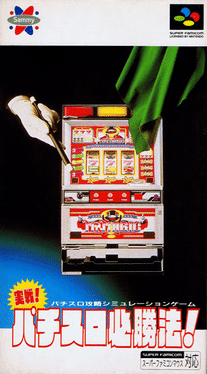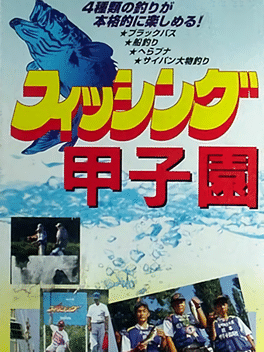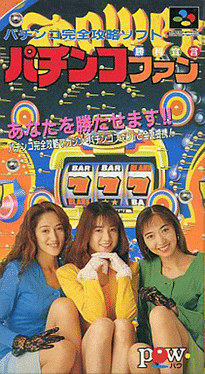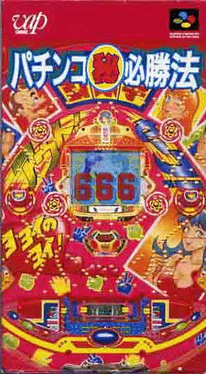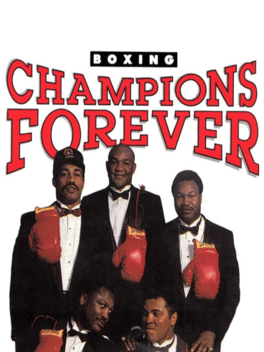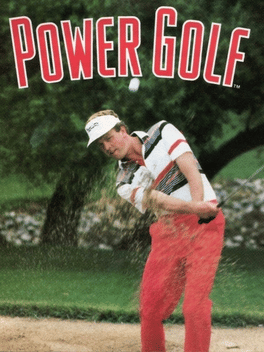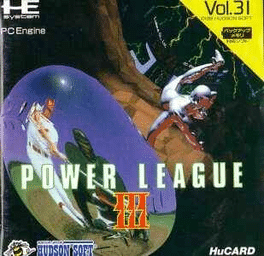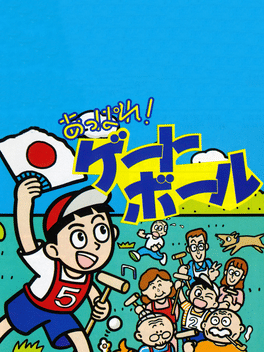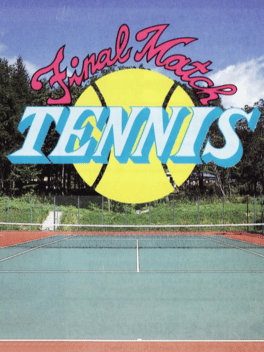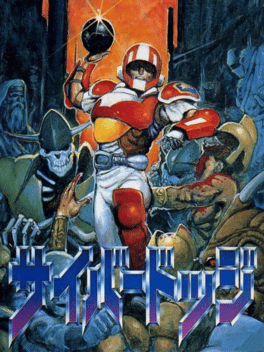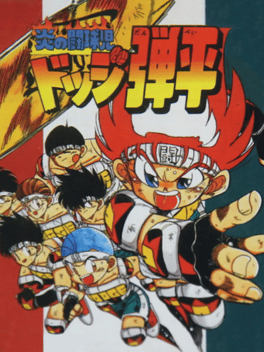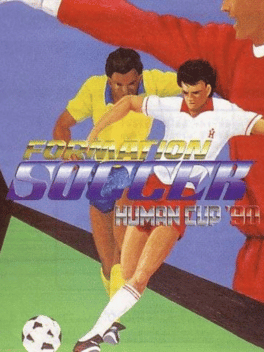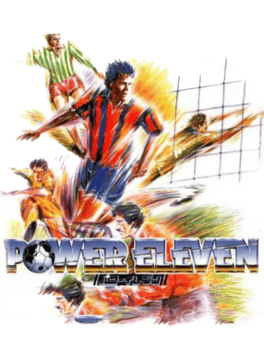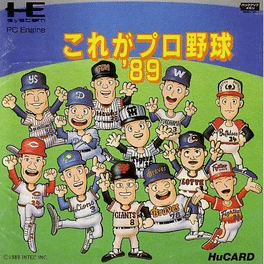Most Popular Mac Games - Page 262
-
Jissen Pachi-Slot Hisshouhou!
1993
Jissen Pachi-Slot Hisshouhou is a Miscellaneous game, published by Sammy Studios, which was released in Japan in 1993. -
Fishing Koushien
1996
Fishing Koushien
1996
Fishing Koushien is a Sports game, developed by A-Wave and published by King Records, which was released in Japan in 1996. -
Fune Tarou
1997
Fune Tarou
1997
Fune Tarou is a Sports game, published by Pack-In-Video, which was released in Japan in 1997. -
Pachi-Slot Gambler
1995
Pachi-Slot Gambler
1995
Pachi-Slot Gambler is a Miscellaneous game, published by Nichibutsu, which was released in Japan in 1994. -
Pachinko Fan: Shouri Sengen
1995
Pachinko Fan: Shouri Sengen is a Miscellaneous game, published by Pow, which was released in Japan in 1994. -
Pachinko Maruhi Hisshouhou
1994
Pachinko Maruhi Hisshouhou is a Miscellaneous game, developed by Jorudan and published by Vap, which was released in Japan in 1994. -
Super Real Mahjong PV: Paradise
1995
Super Real Mahjong PV: Paradise is a Miscellaneous game, developed and published by Seta Corporation, which was released in Japan in 1995. -
Color Baseball
The stands are filled to maximum capacity ... the crowd sits anxiously awaiting the magic that is America's favorite pastime-Baseball! Color Baseball is an action-packed simulation of the sport made popular by Abner Doubleday at Cooperstown, New York, in 1839. You control the action and strategy. You can even give each player a name and a batting average to add more excitement to the game. Intricate color graphics enhance the realism from your "press box view." -
Champions Forever Boxing
1991
It's Ali, Foreman, Frazier, Holmes and Norton -- five of the world's greatest heavyweight boxing champs! Be them or battle them. Each has his actual physical traits and boxing style. Move and jab, or go toe-to-toe and unleash a flurry of punishing hooks, uppercuts and body shots. Protect yourself by blocking punches or clinching. Taunt opponents with showboat moves if you've got the guts. Fight exhibition matches or an entire 15-year career. Between round close-ups show each boxer's facial damage. Beat these five legends and become a Champion Forever! -
Power Golf
1989
Power Golf
1989
Power Golf is a golf video game released by Hudson Soft for the TurboGrafx-16 on August 29, 1989 as one of the system's launch titles. Played using primarily an overhead view of each hole, Power Golf features stroke and match play, and a competition mode that supports up to three players. -
Power League III
1990
Power League III
1990
Power League III is a Sports game, published by Hudson, which was released in Japan in 1990. -
Appare! Gateball
1989
Appare! Gateball
1989
OK. So croquet may not be a popular idea for a video game, but the Japanese being as Japanese as they are, they went and did it anyway. So what does Appare! Gate Ball have to offer? First up is the choice between action and simulation mode. The main difference that I can make out between the two is that in action mode you have to both aim the shot and set the power, in simulation only the shot aiming is required. Your game is played out in two teams, rather than two individuals, and the members of your team are chosen from a variety of weird and crazy looking characters with varying attributes. Shots are aimed in a simple overhead viewpoint, which then switches to a standard view for the execution of the shot itself. All this is accompanied by a jolly little tune that plays away in the background. -
Bull Fight: Ring no Haja
1990
Select your boxer, select your manager and duke it out for the championship. Bullfight takes the conventional side view of many boxing games - you shuffle left and right tapping one button for block and another for punch, the height of which is determined by the D-pad. During the action, commentators chatter away at the bottom of the screen until one of you goes down for good. This is fairly standard stuff, although Bullfight also has an extra fighting mode to add variety. In it, you take to the streets in a Vigilante-style scrolling beat 'em up, stopping at shops to buy equipment on the way to the main fights in a proper arena. -
Final Match Tennis
1991
Final Match Tennis
1991
Final Match Tennis is by far the deepest tennis game in terms of gameplay on the PC Engine. In fact, its play controls are among the most sophisticated in a PC Engine game and in general, in a tennis game (what still counts to this very day). Don't get fooled by its simple graphics. There is everything in this game that tennis is about. Smashes, stop balls, volleys, back and forehand spins or lobs. At the top of it all, you can play it in every thinkable player combination (training, tournament, 1-4 players). By the way: in addition, its one of the best multiplayer games ever. -
Cyber Dodge
1992
Cyber Dodge
1992
Futuristic dodgeball game with a choice of fantastical teams (some suspiciously like certain famous movies) and a varied collection of themed courts. -
Honoo no Toukyuuji: Dodge Danpei
1992
Dodgeball game with loads of anime style sequences and even an RPG style story mode. Based on the manga of the same name. -
Kick Ball
1990
Kick Ball
1990
A comedic baseball game in which players kick the incoming ball before running the bases. Kickball is a comedic sports game developed by Dual and published by Masaya exclusively for the Japanese PC Engine. It resembles baseball, complete with a diamond of bases to around, but the "batting" player is actually kicking the ball. The rest of the game plays like a normal round of baseball. It features seven characters - each of which represents a team of identical athletes - each with their own special pitch/kick move. These characters also include the two protagonists from the Kaizou Choujin Shubibinman series: Tasuke and Kyapiko (or Arnold and Sonia, as they're known in Shockman). Each team also has an assigned stadium that fits their theme: the seal team, for instance, have a stadium with an ice-like floor. -
Formation Soccer: Human Cup '90
1990
A Japan-only soccer game developed by Human for the 1990 World Cup in Italy. It was the first in the Formation Soccer series. Formation Soccer: Human Cup '90 is a soccer game for the PC Engine that was released in Japan exclusively. It is the first of the Formation Soccer games from Human Entertainment: many of which would end up on the Super Famicom/Nintendo as "Super Formation Soccer", in a similar pattern as Human's Fire Pro Wrestling series which also became Super Fire Pro Wrestling once they started coming out on the Super Famicom. Formation Soccer uses a vertical-scrolling view of the pitch. The game was designed and released to coincide with the 1990 World Cup event set in Italy. It features sixteen teams, though only eleven of those actually qualified for the World Cup. The player can choose between a single game Exhibition mode and a tournament "Human Cup" mode to choose between. Teams The following sixteen teams could be selected for use in either mode: Italy (the hosts) Brazil The Netherlands U.S.S.R -
Power Eleven
1991
Power Eleven
1991
Power Eleven is a 1991 Japan-exclusive football video game with top-down perspective, published by Hudson Soft for the PC Engine. It was part of the Power Sports Series, a series of sports games released between 1988 and 1998. -
Kore ga Pro Yakyuu '89
1989
A baseball game for the PC Engine. Features twelve actual Japanese baseball teams. Kore ga Pro Yakyuu '89 ("This is Professional Baseball '89") is a baseball game for the PC Engine and the first of two games with the Kore ga Pro Yakyuu brand, followed by Kore ga Pro Yakyuu '90. It features twelve teams from the Nippon Professional Baseball organization as it was in 1989. The game resembles most baseball games of the era, with a behind-the-batter perspective when pitching and batting and a top-down view when fielding.
